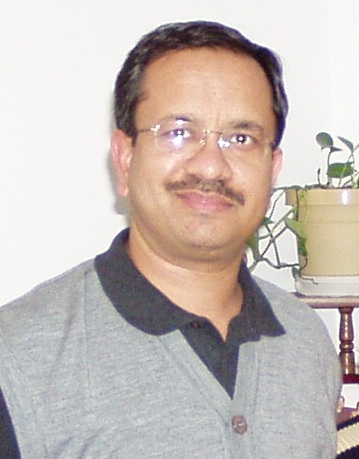
|
Prof. Sunil Kumar, Ph.D.
Dr. Sunil Kumar received his Bachelor of Engineering from NIT, Surat (India) in 1988. He received his M.E. and Ph.D. in Electrical and Electronics Engineering from the Birla Institute of Technology and Science (BITS), Pilani (India) in 1993 and 1997, respectively. From 1997 to 2002, Dr. Kumar was a Postdoctoral Researcher and Adjunct Faculty in Electrical Engineering Department at the University of Southern California, Los Angeles. He also worked as a Consultant in industry on JPEG2000 and MPEG-4 related projects, and was a member of US delegation in JPEG2000 standardization activities.
He is currently a Professor and Thomas G. Pine Faculty Fellow in the Electrical and Computer Engineering department at San Diego State University (SDSU), San Diego, CA. Prior to joining SDSU, Dr. Kumar was an Assistant Professor at Clarkson University, Potsdam, NY (2002 - 2006). He was an ASEE Summer Faculty Fellow at the Air Force Research Lab in Rome, NY during summer of 2007 and 2008, where he conducted research in Airborne Wireless Networks. Dr. Kumar is a senior member of IEEE and has published more than 125 research articles in international journals and conferences, including two books/book chapters. He serves on the technical program committee of several conferences and has organized special sessions and workshops in various conferences. His research has been supported by grants/awards from the National Science Foundation, U.S. Air Force Research Lab, Department of Energy, California Energy Commission, Information Institute, Cisco, Sprint Advanced Technology Labs, and Trellisware Technologies.
Dr. Kumar is actively involved in advising Ph.D. and M.S students, and postdoctoral/visting scholars. His research interests include:
(i) QoS-aware and cross-layer protocols for prioritized multimedia traffic in wireless mobile ad-hoc (MANET), sensor, cognitive radio, mesh and cellular networks.
(ii) Error resilient multimedia compression techniques, including H.264/AVC, MPEG-4 and JPEG2000.
(iii) Digital image processing and machine learning techniques.
|